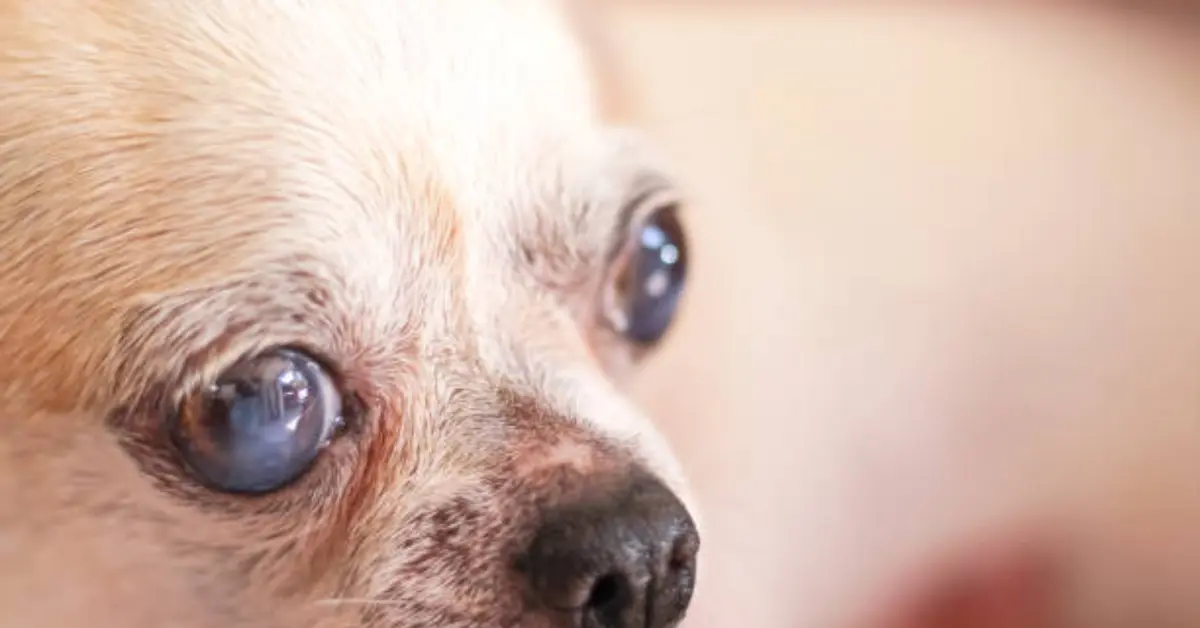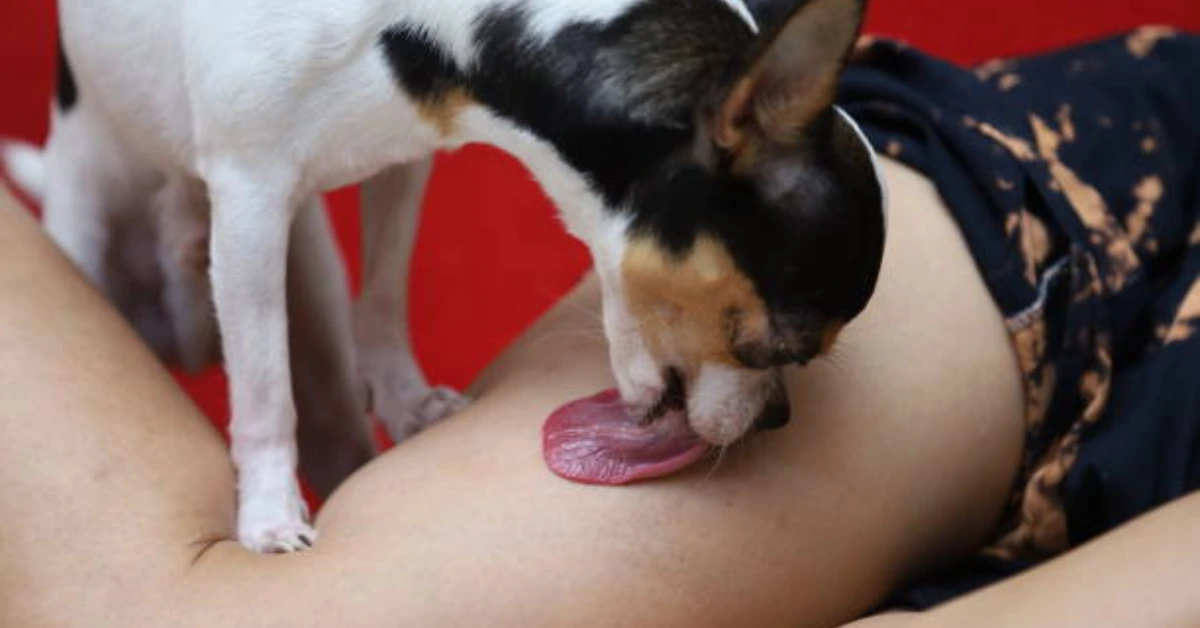Have you ever had a Chihuahua that was deaf? Dogs can’t talk, so it’s harder for them to deal with deafness than it is for people. Dogs can pick up on what we do and even learn a form of sign language.
Deafness is a loss of hearing, either partially or completely. Hearing loss can range from being a little hard to hear to being unable to hear at all. Hearing loss or deafness can happen to dogs of any breed for a number of reasons, but it happens most often to white-colored breeds. The Chihuahua is one of the dog breeds that are born deaf.
Symptoms of Hearing Loss in Chihuahuas
When a chihuahua is deaf, they don’t react much or at all to sounds like:
- Toys that squeak
- Clapping
- Fingers snapped behind the head
- Doorbells
- Mentioning their name
- Some dogs barking
Chihuahuas that can’t hear may also be:
- Hard to wake up
- Easy to startle
- Prone to barking too much
Types of Hearing Loss in Chihuahuas
Congenital deafness is when a chihuahua puppy is born deaf because of his or her genes or because of a birth defect that affects how the ears or nervous system develop.
A chihuahua is said to have “acquired deafness” if it was born with normal hearing but then loses it because of an injury, an infection, a blockage in the ear canal, or aging nerve degeneration.
When sounds can’t get from the outside to the nerves in the inner ear, we call this conductive hearing loss.
Sensorineural hearing loss happens when nerve receptors in the ear can’t send signals to the hearing centers in the brain. This means that the hearing centers can’t get information from the ear and figure out what it means.
Causes of Hearing Loss in Chihuahuas
- Hearing loss from birth. Some dogs are born with one or both ears that can’t hear. In these situations, the disease is passed down and can’t be cured. Congenital deafness is most often seen in white-colored dogs with blue eyes. Albinism, on the other hand, has not usually links to deafness.
- Blockage of the ear canal. In this particular instance, deafness or hearing loss is due to a blockage in the outer or middle ear, which stops sound from getting through. When a chihuahua has otitis of the middle or outer ear, too much earwax can build up and block the outer and/or middle ear.
- Hearing loss that comes with age. Dogs often lose their hearing slowly as they get older. The cause here is not trauma, genetics, or other diseases. Even though this happens over time, most owners think of hearing loss as a sudden event because most animals don’t show signs of being deaf until they can’t hear at all.
- Poisonous. Some medicines, like antibiotics, diuretics, and chemotherapeutics, can make dogs lose their hearing. If the hearing loss is caught early, it may be able to be fixed, but in most cases, the hearing loss will be permanent. Some drugs that can cause hearing problems are aminoglycoside antibiotics, tetracyclines, ampicillin, chloramphenicol, cisplatin, vinblastine, vincristine, furosemide, benzalkonium chloride, digoxin, insulin, potassium bromide, prednisolone, and salicylates.
- Other Reasons Why. Exposure to loud noises can cause short-term or long-term hearing loss. Deafness has also other causes such as trauma, infection, lack of oxygen, or anesthesia.
How is Deafness in Chihuahuas Diagnosed?
If you think your chihuahua is having trouble hearing, you can test his hearing by making loud noises and seeing how they react.
It can be hard to notice hearing loss in just one ear or in only one ear. Here’s how you can check:
- Try playing quieter sounds for your dog, one ear at a time.
- Snap your fingers near one ear, then the other, and watch how they react.
If they answer on one side but not the other, it could be that they only hear well on one side.
Your vet will first do a hearing test and a physical exam to find out what might be causing the hearing loss. During the exam, your vet will also look in your dog’s ears for buildups of wax or hair, foreign objects, and other injuries or problems.
If your vet thinks your chihuahua has an ear infection, they may use a swab and a culture to find out what kind of infection it is and how to treat it best.
The vet may also order a test called brainstem auditory evoked response (BAER) to see how the brain reacts to sounds. Radiographs may also be needed to figure out why a dog is losing his hearing.
Treatment for Hearing Loss in Chihuahuas
Vets can’t do much to fix deafness that is caused by being born deaf or getting old. If the problem is in the middle or outer ear or is caused by inflammation in the inner ear, they may try surgery to fix it.
But most birth defects are caused by problems with the inner ear or the nervous system. In the same way, hearing loss caused by drugs, heavy metals, or loud sounds is often permanent.
Aids for hearing
Dogs are starting to get hearing aids and cochlear implants, but they are still expensive and not very useful right now. The devices work in the same way that human devices do, but pets usually don’t like having the device on their bodies and may not be able to stand it.
Remove Foreign Body
In the case of a foreign body, treatment may include taking out the blockage, cleaning away extra wax, or plucking out hair that has grown too long. The vet will also look for injuries in the ear canal and clean the ears well.
How to Treat an Infection
Depending on how bad the problem is, your vet may give you a plan of ear flushes, drops, oral antibiotics, and/or anti-inflammatory drugs. If it’s not possible to wash your ears every day at home, an antibiotic made of wax may be put into the ears at the clinic.
Tumors of the Ear
If a tumor is inside the ear, a vet may decide to remove it so that sound can travel through the ear better.
Prevention
Chihuahuas who are likely to be deaf because of their genes shouldn’t be bred. To keep from losing your chihuahua’s hearing, you must keep her ears clean and care for them properly. When you groom your dog, use a small piece of gauze or cotton ball and mineral oil to clean the outside of the ear. This will keep earwax from building up too much. Make sure your vet checks your Chihuahua’s ears every time you go to see him or her.
Recovery of Hearing Loss in Chihuahuas
Whether deafness is temporary or permanent, chihuahuas that can’t hear have to have extra care. It is important to keep a close eye on deaf chihuahuas to keep them from getting hurt. Don’t take a pet that can’t hear outside without a fence or a leash.
Recovering from Surgery
Most chihuahuas need follow-up appointments every week to make sure they are doing well after medical or surgical care. When treated, ear infections should go away in 2–3 weeks. But the time it takes to get better can be longer or shorter, depending on how bad the infection was.
Training and Interacting with Your Deaf Chihuahua
- Hand signals can be taught to chihuahuas who can’t hear.
- You can get your chihuahua’s attention with a flashlight or laser penlight.
- Tap your dog on the back or shoulder to let him or her know you’re going into or out of a room.
- Never let a dog outside that has trouble hearing because it won’t be able to hear cars coming.
- Deaf Chihuahuas are prone to getting lost. This is why a microchip and an ID tag on the collar are great suggestions. Help ensure their tags have the most up-to-date information about how to reach you. And put on the tag that your chihuahua is deaf.
YOU MAY ALSO LIKE:
Understanding Your chihuahua’s Body Language-Sounds And Movement
Are Merle Chihuahuas Unhealthy?
Advertisement
















